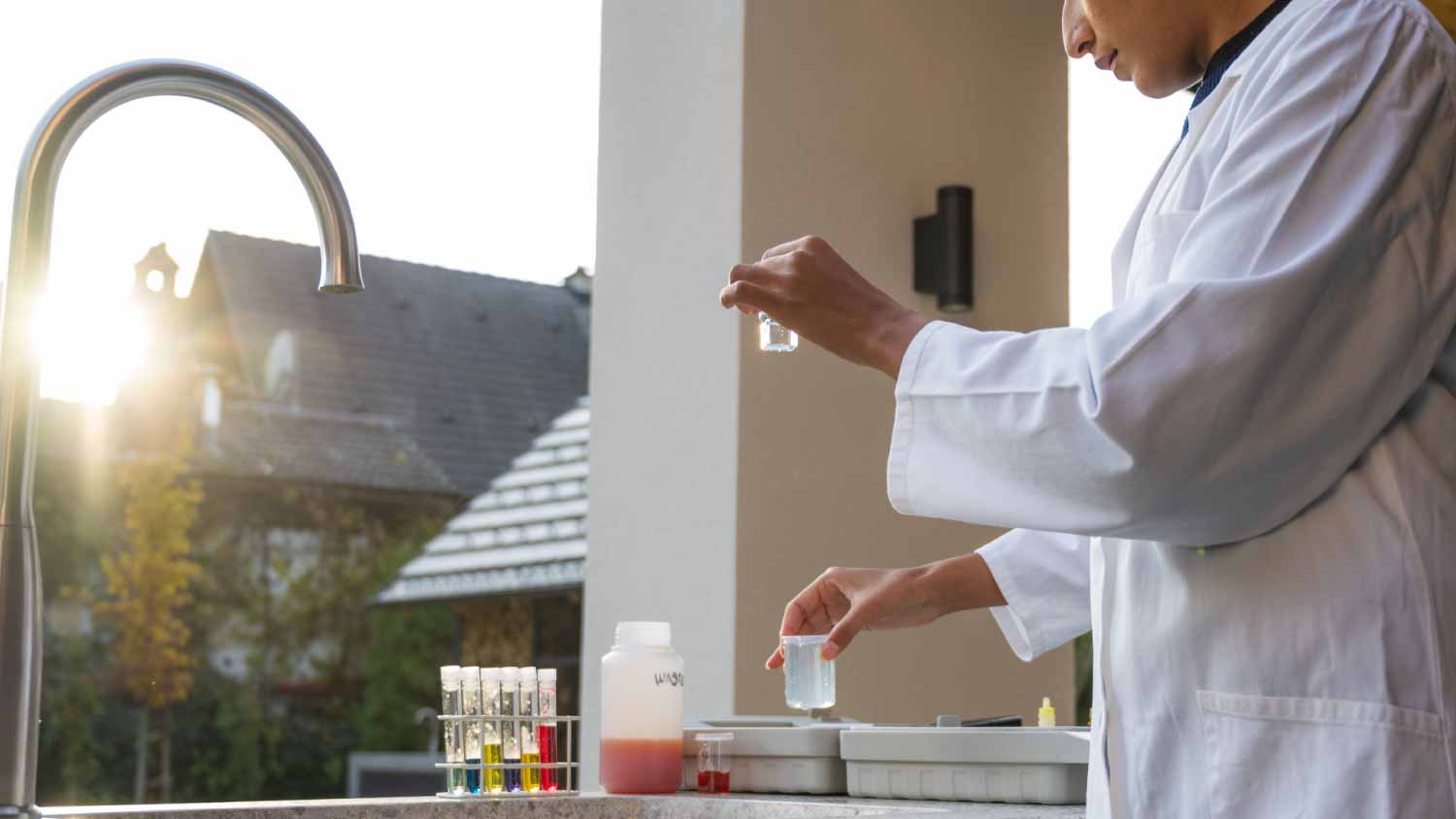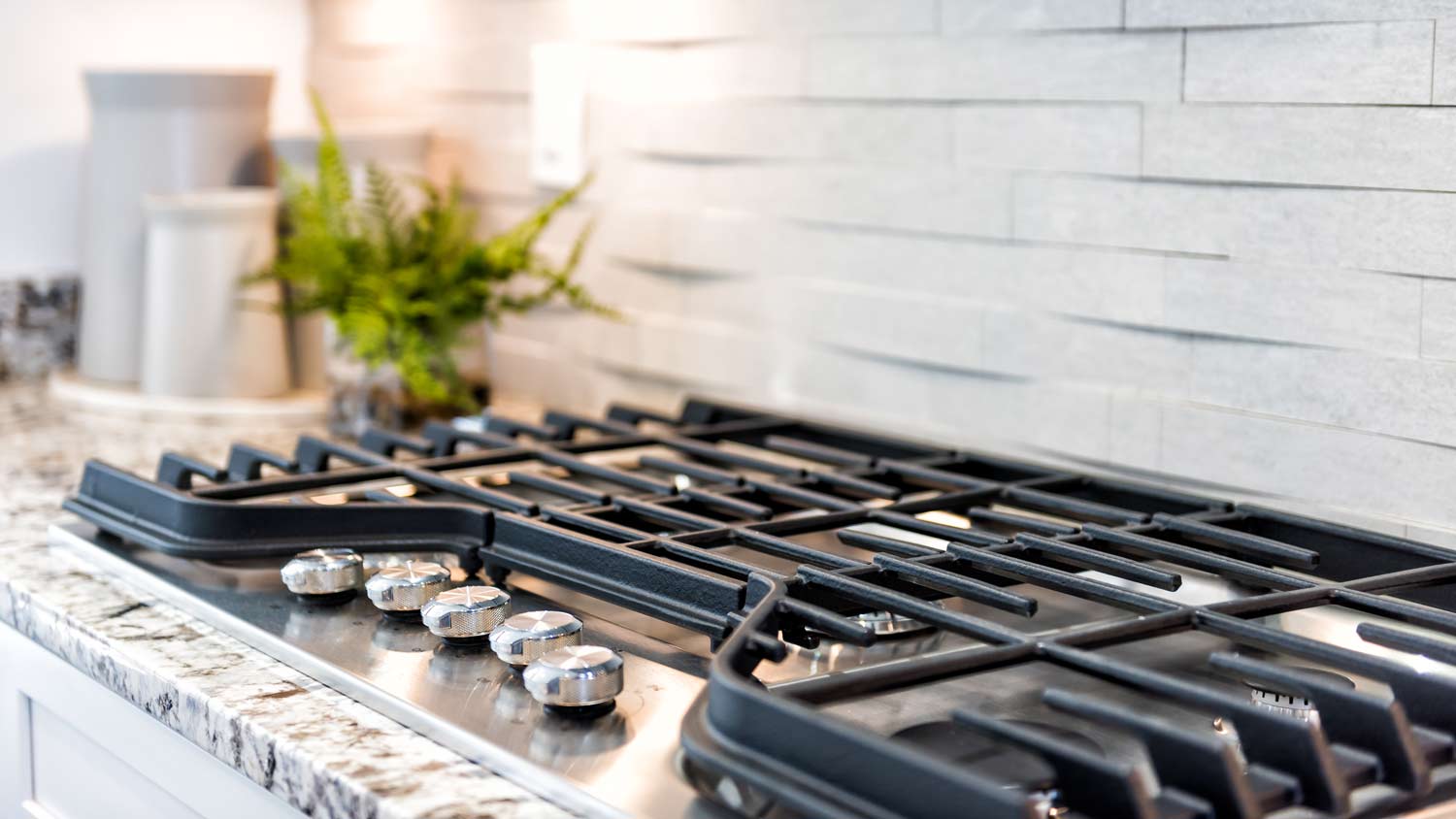
Radon mitigation systems help protect your home from harmful gas buildup by reducing indoor radon levels. Learn about costs, types, and hiring a professional.
A state-certified radon specialist installs mitigation systems


Radon detection and reduction specialists install systems that remove dangerous, odorless radon gas from your home.
Installing a radon mitigation system averages $1,025 and varies by location, system type, home size, and foundation.
Plan for repeat testing, routine maintenance, and eventual radon fan replacement as ongoing costs.
Professional installation includes sealing entry points and properly venting gas to protect your home and family.
This article was created using automation technology and thoroughly fact-checked and edited by HomeAdvisor Editor Ryan Noonan.
If you are wondering who to call to install a radon mitigation system, hire a professional radon detection and reduction specialist, also called a radon remediation professional. In many states, you must choose a state-certified pro after a positive test.
It’s best to avoid DIY and unlicensed general contractors—incorrect installation can increase radon levels. Use this pro hiring guide to choose safely and confidently.
A certified radon specialist delivers reliable testing, an effective mitigation design, and safe, code‑compliant venting. Pros seal cracks, install the fan and piping correctly, and guide you on maintenance to keep levels down. They reduce radon to acceptable levels and confirm performance over time to protect your home and family.
Here are some of the top benefits of hiring a radon detection pro:
Specialized radon testing expertise for reliable results
Confirms high results with repeat testing when needed
Recommends the best mitigation approach for your home
Seals basement cracks and entry points thoroughly
Installs fan and piping for proper attic venting
Knows how to maintain the system over time
State-certified in many locations where required
Reduces the risk of making radon worse through DIY errors
Focused experience with radon detection and reduction
If you’re unsure about the complexity of your situation or want to ensure the highest level of safety, you might want to consider hiring radon removal pros near you to ensure your system is installed and maintained correctly.
Do not hire a general contractor for radon mitigation unless they are also a licensed radon remediation professional. Radon mitigation requires specific detection experience and system know‑how that a general contractor may not have.
An unlicensed general contractor can install the system incorrectly, risking higher indoor radon levels. If a contractor also holds proper radon licensing, they are acceptable. Otherwise, choose a specialist.
Radon mitigation follows a clear process led by a specialist who tests, confirms results, blocks entry points, and vents gas safely outside:
Perform a radon test using short‑term or long‑term methods to measure levels.
If a short‑term test exceeds 4 pCi/L, repeat to confirm and average the results. Mitigation is required above 4 pCi/L and recommended above 2 pCi/L.
Seal cracks and openings to limit radon entry.
Install basement piping and a radon fan to move gas upward and out through an attic vent.
Installing a radon mitigation system averages $1,025. Your total depends on your geographic location, the type of system installed, your home’s size, and its foundation.
You’ll also need to account for ongoing costs, such as repeat testing after several months to confirm performance, routine maintenance, and future radon fan replacement. Radon fans last five to 10 years before replacement is needed.
From average costs to expert advice, get all the answers you need to get your job done.

Radon mitigation systems help protect your home from harmful gas buildup by reducing indoor radon levels. Learn about costs, types, and hiring a professional.

Use this guide to budget for fireplace repair costs based on factors such as fireplace type, the part that needs replacing, labor, inspections, and more.

Use this guide to budget for gas grill installation based on factors such as type of grill, pre-installation prep work, and labor rates.

Curious who to call to install gas lines? Learn safety steps, permits, and gas line installation costs so you can hire with confidence.

Find who to call to test water for lead. Learn when to hire a certified water testing professional or state-certified laboratory and what to expect.

Wondering who fixes gas stoves? Hire a licensed natural gas plumber. Learn pro benefits, other options, and how repairs get done safely.